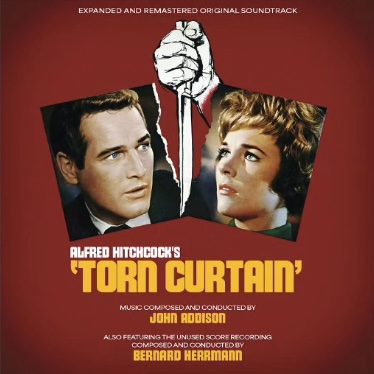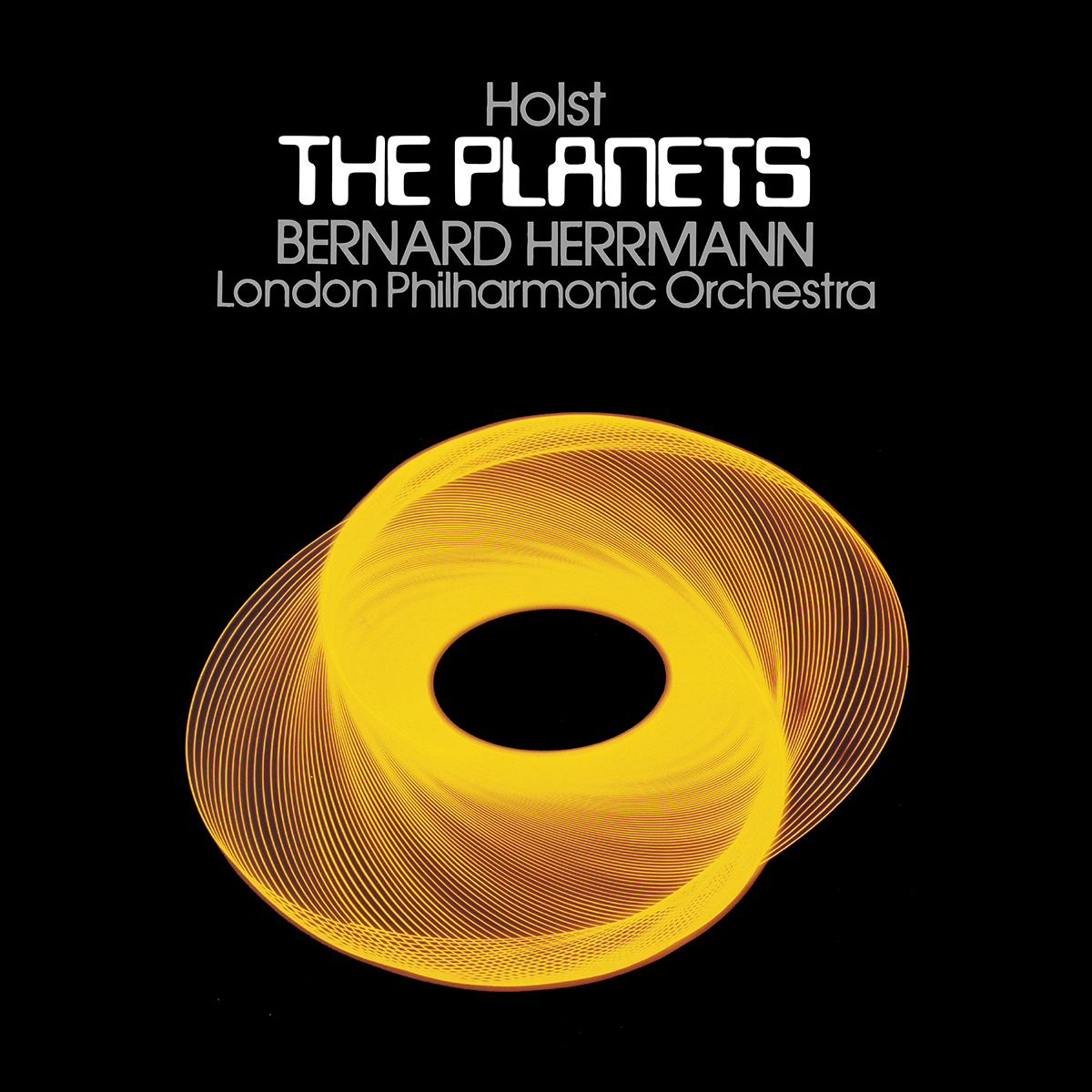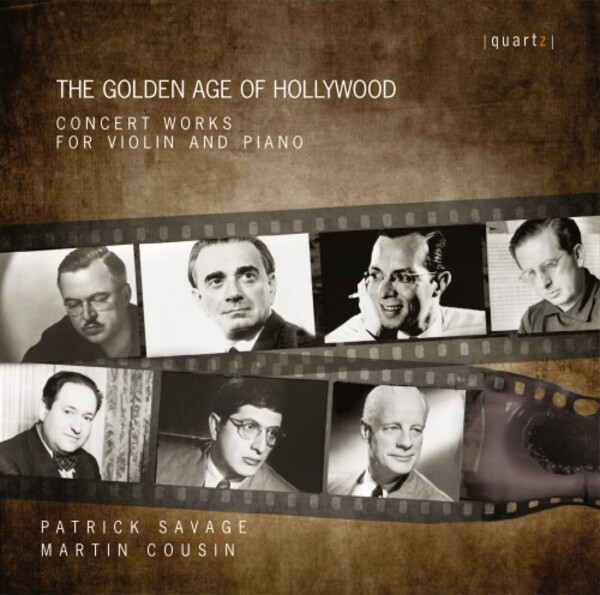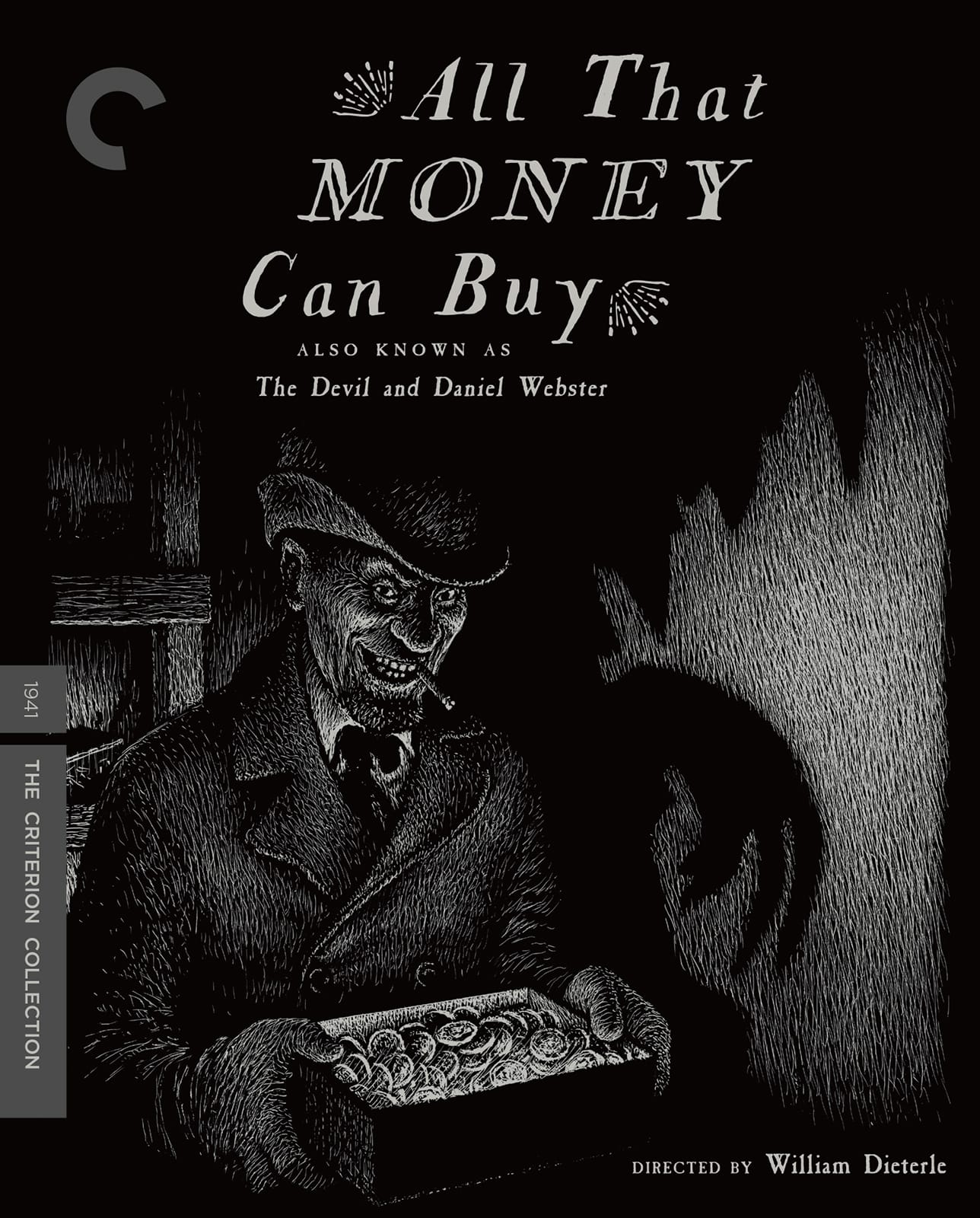Concert
Bernard Herrmann: More than the Movies
Eos Orchestra
Jonathan Sheffer
New York
15 February 2001
Review #1
The group’s artistic director and conductor, Jonathan Sheffer, who emphasized that he was drawn to the works that round out a composer’s oeuvre as well as those for which they are renowned, introduced the evening. He also averred that, while acknowledging the brilliant work of other film composers, he doesn’t feel the need to play them as he does Herrmann. He seems clearly drawn to this music, intellectually and emotionally.
As others have, I must mention how exciting it was to hear live what was heretofore limited to the world of analog and digital. Familiar strains that revealed themselves even in the tuning of instruments were thrilling. Four strings (including bass) and one clarinet pulsed sensitively and precisely as they played through (for this session) the second and third movements only. There was rich applause belying our numbers after each one. Described later by the attendees as “lyrical and dreamlike,” the performance of this melancholy piece was beautiful. I was delighted to hear the attention to the lights and darks that hallmark the best of Herrmann. It was a sign of good things to come.
Mr. Sheffer, in his introduction, described the third movement as “Italianic,” and, in passing to the musicians, said smilingly, “with a little menace.” He also confessed to hearing echoes of Vertigo in Souvenirs (for me it was Psycho‘s Phoenix opening). As a taste of the upcoming concert, he said of atonal music “what people will accept as a backdrop to a horror film, they tend to pull away from in a concert hall.” Three days later, no one would be pulling away.
The evening at the Ethical Culture concert hall near Central Park started with a symposium “The Importance of Being Herrmann” with Mr. Sheffer, Dorothy Herrmann, and John Waxman. Included were a brief biography of Herrmann and notably, Dorothy recollections of her parents: their meeting at CBS, their collaboration on the Bronte opera, and Herrmann’s refusal to cut it – even just a little bit. Mr. Sheffer’s related his pleasant discovery that early radio was in essence both educational and commercial in nature: a licensing dictate to entertain and teach. A perfect forum for Herrmann’s melodrams’ marriage of music and literature.
An amusing point touched on was Ms. Herrmann’s memories of Mr. Herrmann “croaking out” “Wuthering Heights for family and friends (the image of which would be in stark contrast the second half of the evening). The undeniable inference is that he regarded this as his masterpiece, a culmination. The inability to achieve an actual performance bearing on his soul so acutely that, upon hearing that his film music was being pirated, Herrmann said, ” I wish they would pirate my opera!” Familiar stories made special by the immediate retelling. A parenthetical humorous note regarding Mr. Waxman, music publisher and son of Franz: Mr. Sheffer facetiously questioned John’s altruism as he asked that, while promoting Herrmann’s music, “wasn’t there another composer’s music you, maybe, would like to include?”
One of the night’s uber-approaches was one of “context.” Rather than denying the music’s origins for concert purposes, their contexts were fully embraced – with varying success. Thus, a concert of the full scope of Herrmann began with Arnold Schoenberg’s “Accompaniment to a Film Scene.” Written for no movie, this atonal piece served to demonstrate Herrmann’s influences and set the “world’ of the evening. Taking the title as a suggestion, it was easy to imagine appropriate movie moments for this piece: high-charged romance, drama and action. A few codas were definitely reminiscent of Steiner and even Goldsmith. Mr. Sheffer, baton in right hand, would reach with his left to “snatch” moments.
Again, embracing the context, La Belle Dame sans Merci was introduced via its original radio introduction, played over the sound system. The Keats text was enacted by actor Michael Wager (who blanched amusingly as another actor’s name was proclaimed by the announcer from the old recording). Though committed, and acting the hell out of it, he did not have the pipes (and poorly miked as well) to be on equal footing with the orchestra. The irony is that on radio, he would have been front and center, his nuances accented. But here he became “that person talking while trying to hear the music.”
And this music was rich with the emotional highs and dynamics that Herrmann was not afraid to employ, even as backdrop to a poem that was not epic in nature. No wonder Lucille Fletcher was impressed upon its premiere.
And then, the brass, woodwinds and percussion left the stage.
It must be time for…
The hall darkened and the screen upstage lit up with the opening scene of Vertigo and the climaxes of Ghost and Mrs. Muir and North by Northwest, followed by the shower scene from Psycho right up to the throwing open of the curtain. The darkened figure appears, the image freezes, lights up! – The orchestra went into the Murder cue followed by the Psycho suite compiled by conductor John Mauceri in 1998 based on Herrmann’s notes.
Instinctively, I leaned forward – and noticed others were also. Whether their motives were extreme familiarity or excitement, mine was the desire to watch. This, may I say, infectious main title, heard so many times, so emblematic – I wanted to SEE it being played: the rabid bowing and those moments where everyone plucks (all with the same hand articulation). Sheffer took the time to take a full pause between the Main Title and “Phoenix” and urged very sharp playing in the motifs that have their origins in the Sinfonietta for Strings. This stab at Psycho received a tremendous ovation.
After an intermission wine reception, we returned for the second half and Wuthering Heights. I missed my chance to buy the Unicorn recording months ago, so I was anxious. Full bodied, towering romanticism (he was fearless in this area – expected nothing less) and, of course, it prompted the mental checklist: Jane Eyre. Mrs. Muir. Was that 7th Voyage of Sinbad? A high point was the climax of Act II wherein Kathy’s heart-rending “Heathcliff!”‘s led to a stirring crescendo and climax. So stirring in fact it prompted pre-mature – and deserved applause. Thrilling. (As if being pulled from the musician’s back pocket, several times the Cymbals rose to clash -my eyes were drawn to this bit of intertexuality, amusing probably only to myself)
Plaudits to the striking singing of Joyce DiDonoto and Nathan Gunn as the lovers. She gave a titanically varied and moving performance and he, while certainly assured and of immense presence, definitely lacked the dark, impassioned soul that haunts the novel. Award-winning actress Cherry Jones was Nelly, serving as narrator. Clearly an audience favorite, she was belovedly applauded.
The performance in-toto received several boisterous standing ovations, capped by Mr. Sheffer holding aloft the red-bound score. The encore was the wonderfully inevitable North by Northwest. Attacked with gusto, this was an “on top of” rendition with an orchestra obviously well versed in its dynamics. Much better than the live-in-performance version on the recording of “Music from Hollywood.” Great congratulations to EOS for a detailed, muscular, bravura showing.
Expanding on his thoughts of earlier in the week, Mr. Sheffer spoke of the double-edged rapier of success and how Herrmann became a prisoner to his stunning film work and could not fully “break out” in other areas. The large picture, one that extends into today is one that he could not possibly see: he is revered as THE most influential composer for THE 20th century art form. Dorothy Herrmann prompted applause when she offered that Benny and Lucille would be terribly excited that this concert, highlighted by Wuthering Heights, was taking place. A concert that sold-out early and had a waiting list. Mr. Sheffer suggested that this was rarity for EOS. But certainly, in this instance, not a surprise.






![The Man Who Knew Too Much – 4K restoration / Blu-ray [A]](../../../wp-content/uploads/2023/11/TMWKTM-4K.jpg)
![The Bride Wore Black / Blu-ray [B]](../../../wp-content/uploads/2023/07/BrideWoreBlack.jpg)
![Alfred Hitchcock Classics Collection / Blu-ray [A,B]](../../../wp-content/uploads/2020/07/AHClassics1.jpg)
![Endless Night (US Blu-ray) / Blu-ray [A]](../../../wp-content/uploads/2020/03/EndlessNightUS.jpg)
![Endless Night (UK Blu-ray) / Blu-ray [B]](../../../wp-content/uploads/2019/12/ENightBluRay.jpg)